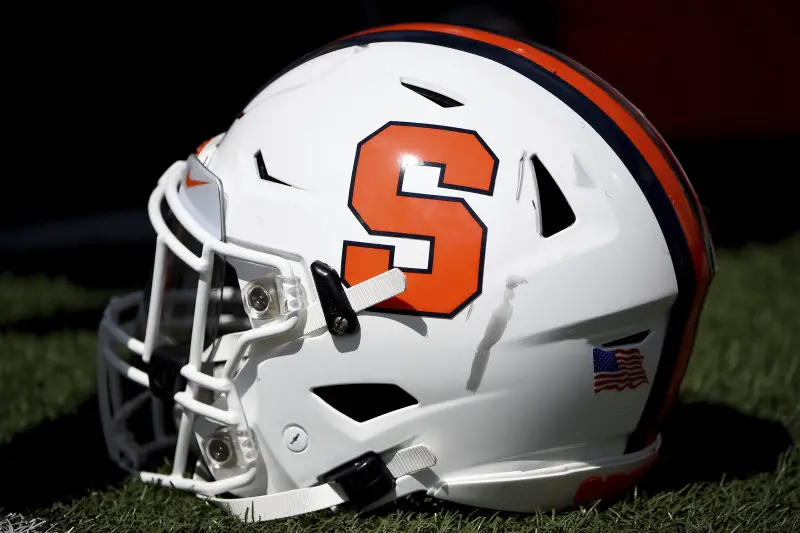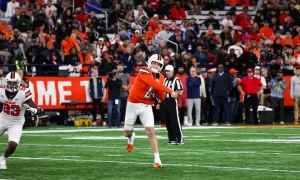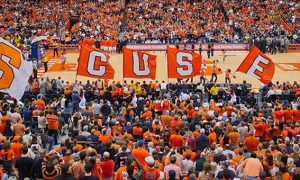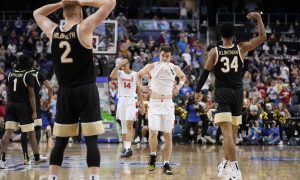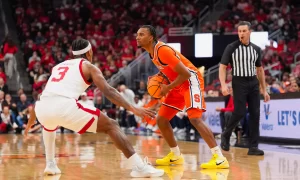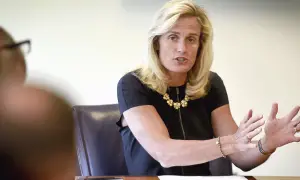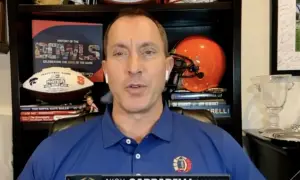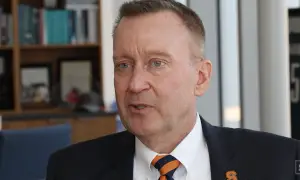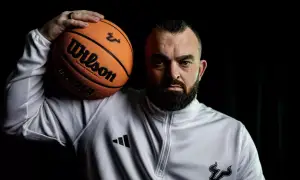The Fizz has been diving into Syracuse Athletics’ nutrition shortcomings for a past few weeks. In case you missed it, we encourage you to check out our previous coverage. We found that SU is way behind in the nutrition department and its own athletes agree. The Orange are the only athletic program in the ACC without a legitimate nutrition/dietician department. Is this the sole reason why Syracuse has been struggling in most sports recently? No, but it’s certainly a contributor.
The Fizz spoke with an SU nutrition professor to gain some more insight into the situation and the history of it. She’s been at the school for good period of time and has been calling for change within the athletic department since she stepped foot on campus.
Follow along our Q & A with Professor Jessica Garay:
How much further ahead are the other schools in the ACC than Syracuse right now?
“Given that we have a pretty strong nutrition program on the academic side, we’re definitely behind other ACC schools in the sense that we haven’t leveraged that resource within athletics. A lot of other ACC schools also have academic nutrition programs, but then they also have full time dieticians on staff in the athletics department.” 
Do you think it would be better to have a specific nutritionist to take care of the nutrition aspect rather than the strength coach doing two jobs at once?
“At this point, what we’re asking the strength coaches to do is way more than what they need to be doing at this point. The sport dietitian could take a lot of that burden away from the coaches.”
Why do you think a specific football nutritionist could be beneficial?
“The football team, from a nutrition perspective, is really a lot of different teams all in one. You think about all the different positions, and body types, and the nutrition needs and the goals. Some guys are trying to maintain or lose weight, some guys are trying to maintain or gain weight. There’s just a lot of different needs there.”
Do you think the players have all the resources they need right now to meet their nutrition goals?
“Right now they’re not being serviced appropriately and I know a lot of teams in the past have resorted to catering. They’ll order Jimmy John’s for the team because the coaches want to make sure that they know the athletes are eating. But there’s just not a good on campus option.”
“Some of these other programs, not just in the ACC, but across D1 for sure, have really nice feeding facilities for their athletes. Like smoothie bars where you can basically get a custom made smoothie. Full on dining halls with hours that work with athletes practice schedules. That’s another area where we are lagging behind.”
What are the downsides of not having a nutritionist/dietician in the athletic department?
“At this level, the D1 level, everyone is talented. You’re playing against all these other really great athletes. The difference between winning and losing sometimes comes down to all of these little x-factors like how much sleep you got last night, how well hydrated you are, how well you’ve been eating, what your mental state is like. To me, I think making sure our athletes are taken care of in all of those ways is just going to help increase the chances that they’re healthy and playing at their best level.”
What would the cost be to add a nutritionist right now, and how many people should be in the department?
‚ÄúTo be realistic I think it would be great if they could get one full time person. I think that‚Äôs at minimum what‚Äôs needed‚Ķ Because it‚Äôs a position where they haven’t had anyone before, they might hire someone that‚Äôs newer to the field so that would keep the salary cost down.‚Äù
“Aside from salary there wouldn’t necessarily have to be a whole lot of other expense because they already have these feeding facilities that they’re planning to build as part of this new addition onto Manley. Each team has a budget for food as it is so it would be a matter of working within those existing budgets.”
Are there any other reasons as to why they wouldn’t have a dietician or nutritionist in the department?
“In conversations I’ve had in the past that’s always been kinda the reason that I was given as far as why they haven’t moved forward, that it was just a matter of fitting it into the budget.”
Why is every other school doing it and not Syracuse?
“There are a lot of lesser D1 schools that have a full time person. So that’s where, when they say ‘we have to figure it out into the budget,’ I’m like okay well a lot of these other schools have figured it out who don’t even have a football program.”
Have you seen any kind of change over the years?
“Now it does feel like there’s a little bit of change coming. I know prior to COVID there were definitely a lot more specific conversations about hiring someone and then COVID kind of killed that progress so we’re back to square one.”
“In the last two years, we’ve actually brought some really experienced sports dieticians to campus as speakers. Every time they’ve come, we’ve had them meet with people from athletics. That has also highlighted the value of having someone and what they can bring to the table.”
Anything else you’d like to say on the topic?
“This push we’re making for a sports dietician is not to step on anyone’s toes who currently works there or replace anyone. It’s really to add on to what we can do with athletes and how best we can serve them as a team.”


